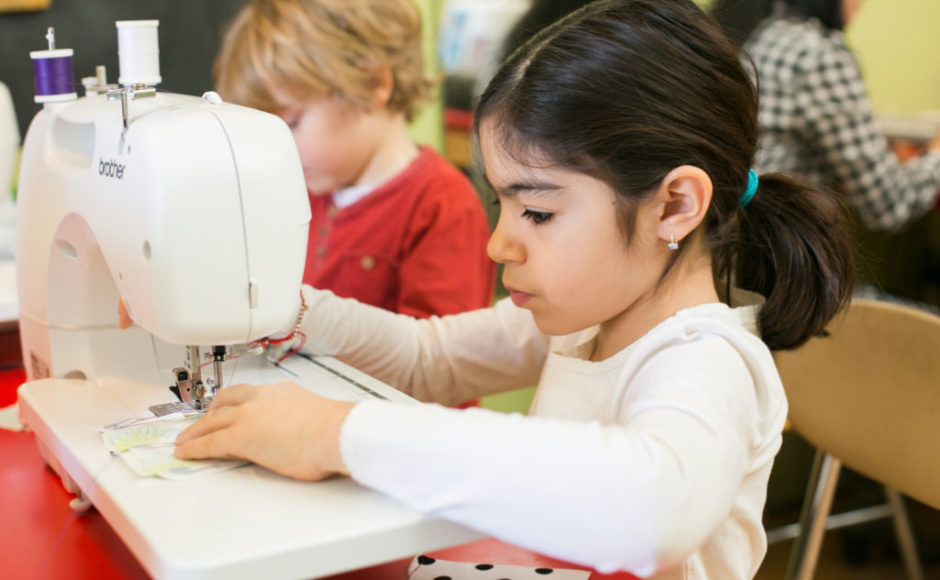Sewing as become a popular past time for many adults and children alike. Some of the increase in popularity has been attributed to shows such as The Great British Sewing Bee where amateur dressmakers compete against one another to be crowned the overall winner following a series of weekly challenges.
Many children have become enthused by the idea of sewing and there is nothing more exciting than taking your children to buy their first Dressmaking Fabrics. If you need dressmaking fabrics go to quality fabrics today where you will find a whole array of items. There are some tips for helping your child to sew and some simple projects to get them started off.
Where to start in terms of teaching your child sewing skills will depend very much on their individual personality and skills level as well as whether they have regularly watched you making items. But an indication of the types of things you may want to be teaching them based roughly on ages includes – lacing cards and large beads from ages 2-4, basic stitches and cross stitch from the ages of 5-7, a small starter projects with patterns and hand and machine stitching from ages 8-10 and garment construction and sewing techniques from the ages of 11 and over. These are of course just a guide and you may want to alter these based on your own child.
Sewing is a lot about patience and creativity, and it is key that your child has both of these before you start teaching them sewing techniques and will also determine the types of projects that you give them. Finding something that they can complete in an hour or two is always a good place to start. This may be a small cushion or perhaps an item of clothing for a favourite toy or doll. The more your child practices the more they will learn and gain enjoyment from making items. It is also important to allow your child to express their creativity even if this means creating a garment that is a little more outlandish than you might make for yourself.
Breaking down each project into bite sized amounts means that you child can see the item coming together whilst not losing interest in what they are doing. It is also important that you help your child understand that mistakes happen when sewing and that it just something to leave from and in some case even something to have a good laugh at.




